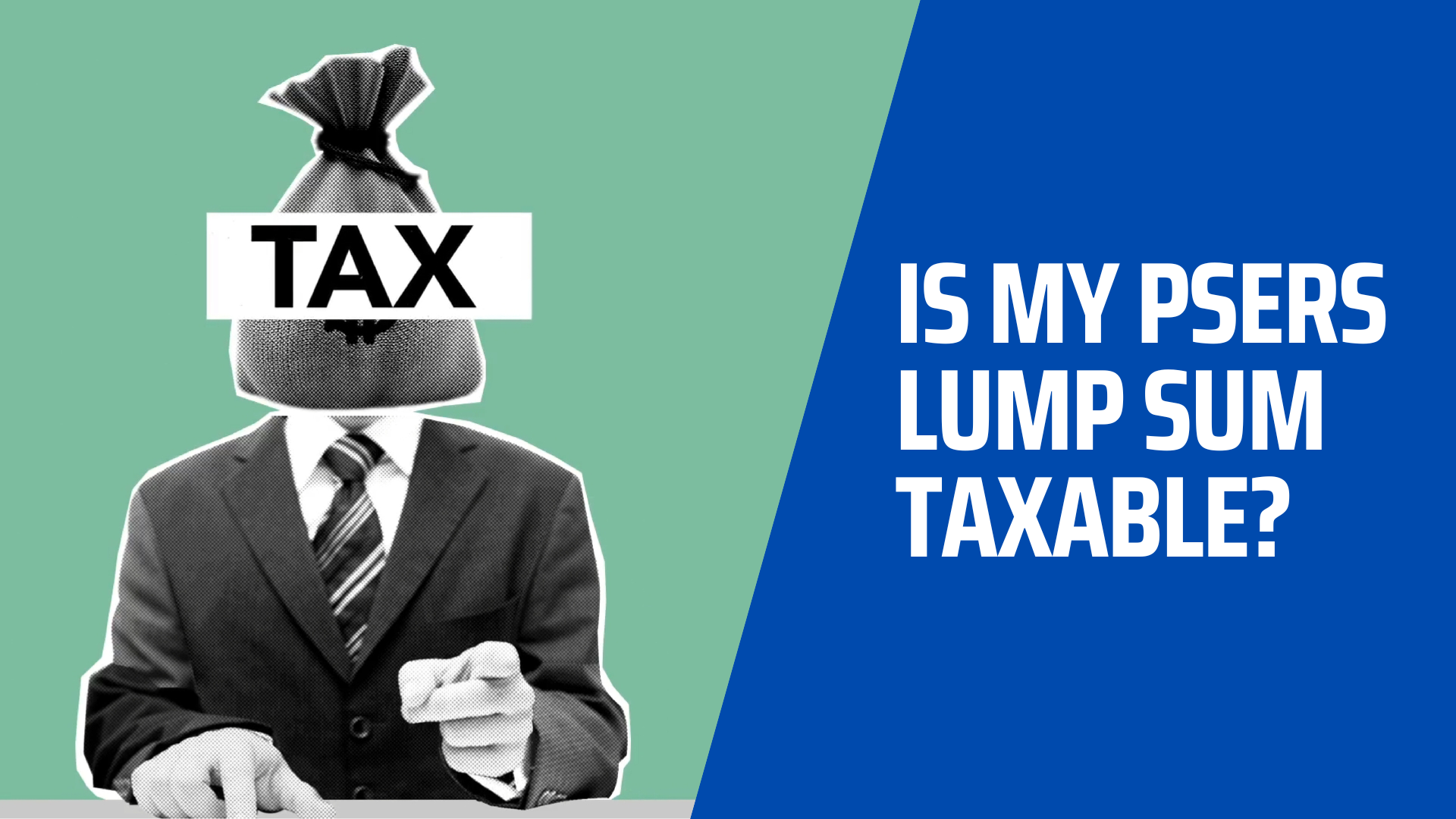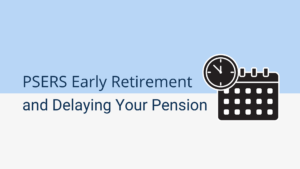*TeachersRetire is not affiliated with, endorsed or sponsored by PSERS*
As you approach retirement, there are a lot of important considerations like:
- Which pension option is best?
- When is it best to retire?
- How will my income change once I retire?
- What will I do about health insurance before Medicare?
What can get lost in the shuffle of the PSERS retirement process is the question or how much of your pension money will you actually keep and how much will you need to share with the IRS. Taxes play a major part in retirement and could likely be your greatest expense over time.
Your pension is likely your most valuable part of your financial picture so its important to know how it’s taxed and how to pay less tax. In this video and article, we’ll focus on the contribution and interest portion of your pension (aka the “lump sum) and how it is impacted by taxes.
What is the lump sum?
Each paycheck, you contribute to your PSERS account. That money earns a fixed rate of interest and grows over time. You can find your current balance on Page 2 of your PSERS Statement or in your Member Portal.
At retirement, you can handle your lump sum in one of two ways:
- Leave the money in PSERS in exchange for a higher pension payment
- Withdraw your lump sum amount and receive a lower pension payment
The best decision for you depends on your financial picture and income needs. You can learn more about the lump sum here. Your choice in regards to the lump sum can have major tax implications so let’s learn how this all works.
Is my PSERS lump sum taxable?
The contributions and interest in your PSERS account has not yet been subject to federal income tax. You don’t include the contributions on your tax return as income. So, you will eventually pay federal income tax on this money. The good news is, you can choose when this money becomes taxable to you.
As a side note, Pennsylvania generally doesn’t tax pensions or withdraws from pre-tax retirement accounts. However, if you move to another state in retirement, you should learn how that state handles taxation of PSERS and other retirement accounts.
How do I choose when to pay taxes on my lump sum?
The lump sum doesn’t become taxable simply because you’re retiring. You will owe tax on that money once you decide to withdraw it from a pre-tax retirement account or qualified retirement plan (PSERS). As long as the money resides in PSERS, a pre-tax IRA or a pre-tax 403(b) it will not be taxed.
When you’re completing your PSERS retirement application, you will have to make a decision on whether or not to withdraw your lump sum from PSERS and where that money should go. You have three options, each of which will determine how your lump sum is taxed.
What are the 3 ways I can handle my lump sum?
On your retirement application, you will tell PSERS how you wish to handle your lump sum. Each option has its own tax implications which should be considered carefully before making a final decision.
Option #1- Leave your lump sum in PSERS
You can choose to leave the money in your account with PSERS. This means you’re giving up access to it but, in exchange, PSERS will pay your full pension amount available for whichever pension option you choose.
Since your pension payments are federally taxable, this means you’ll pay income tax on your lump sum each year as you receive it back in higher pension payments. For example, if a PSERS member chose not to withdraw their lump sum, their pension payment might be $4,000 per month. If they chose to withdraw their lump sum, it might decrease to $3,000 per month. This means her pension would be $12,000 more per year which is all taxable income.
Essentially, choosing to leave your lump sum in PSERS means paying tax on it slowly over time via higher pension payments each year.
*This is a hypothetical example and does not reflect actual PSERS pension calculations. Please reference your own pension account and benefits before making any decisions.
Option #2- Withdraw the lump sum
You may choose to withdraw all or a portion of your lump sum from PSERS and place it in a non-retirement account like your bank account. This means removing it from the pre-tax retirement account “shelter” and will cause the entire amount to be taxable that year.
For some members with large PSERS accounts, this could be a major increase in taxable income during the year of retirement. Depending on your household tax situation, it could very well cause you to move up one or more tax brackets and pay more income tax than expected.
Due to the potentially significant tax implications, this option should be considered carefully and with the help of a tax professional.
Option #3- Withdraw and rollover to a pre-tax retirement account
Another option is to withdraw the lump sum and roll the money over to a pre-tax IRA or 403(b). If this is done properly where the money goes directly from PSERS to the pre-tax account, it is a tax-free transaction.
This doesn’t mean you never pay tax on the money, however. It simply helps you avoid paying tax on the entire amount in one year. You will eventually pay federal income tax (and potentially state tax) when you make withdraws from the IRA or 403(b). Typically, you don’t have to withdraw from these accounts until you reach the age of Required Minimum Distributions.
To roll over your lump sum, you must indicate such to PSERS on the retirement application. You then complete the Authorization for Direct Rollover form to tell PSERS where to send the money.
You’re in control of your lump sum and taxes
You have control over how you handle your lump sum and when you pay taxes on it. Most importantly, be sure to consider your income needs, spending, taxes and long-term financial picture before making a decision on your lump sum.



